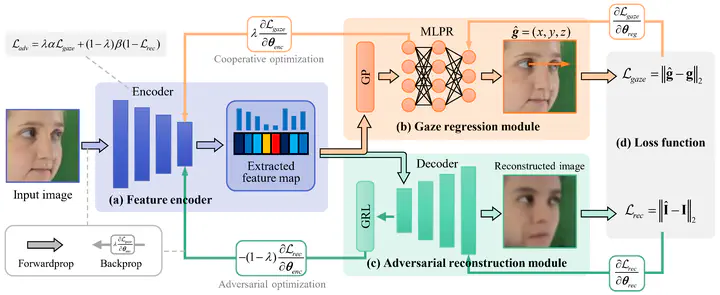GSA-Gaze: Generative Self-adversarial Learning for Domain Generalized Driver Gaze Estimation

Abstract
Estimating driver gaze accurately is critical for the human-machine cooperative driving, but the significant facial appearance diversions caused by background, illumination, personal characteristics, etc. pose a challenge to the generalizability of gaze estimation models. In this paper, we propose the generative self-adversarial learning mechanism for generalized gaze estimation that aims to learn general gaze features while eliminating sample-specific features and preventing cross-domain feature over-fitting. Firstly, to reduce information redundancy, the feature encoder is designed based on pyramid-grouped convolution to extract a sparse feature representation from the facial appearance. Secondly, the gaze regression module supervises the model to learn as many gaze-relevant features as possible. Thirdly, the adversarial image reconstruction task prompts the model to eliminate the domain-specific features. The adversarial learning of the gaze regression and the image reconstruction tasks guides the model to learn only general gaze features across domains, preventing cross-domain feature over-fitting, enhancing the domain generalization capability. The results of cross-domain testing of four active gaze datasets prove the effectiveness of the proposed method.
Add the publication’s full text or supplementary notes here. You can use rich formatting such as including code, math, and images.